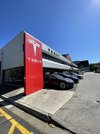JohnDe
La dolce vita
- Joined
- 11 March 2020
- Posts
- 4,562
- Reactions
- 6,705
No I have no recollection of the Holden Starfire engine. When did that appear, 1940's ?
Hahaha, yes anyone that did not have any knowledge of this Aussie engine would have figured it was a 1940's design. But no, it was developed in the late 1970's when all other manufacturers were using aluminium, cross flow heads and overhead cams.




